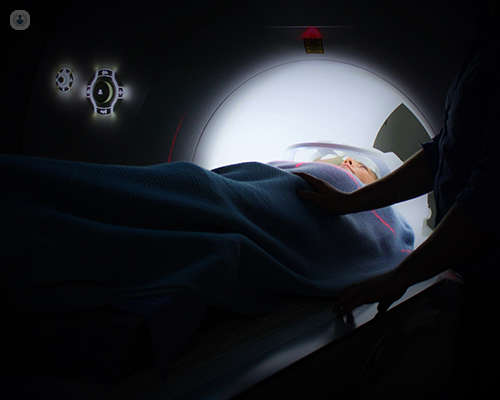CT coronary angiogram scan: your all-you-need-to-know guide
Autore:At Top Doctors, we want to provide our readers with accurate, informative, and reassuring information, and that’s just what we’re hoping to achieve here in this patient-journey-style article, where esteemed London-based cardiologist, Dr Iqbal Malik, provides us with an all-you-need-to-know guide for those who are due to have a CT coronary angiogram scan.

My doctor says I need a CT coronary angiogram scan: what do I need to know beforehand?
If your doctor says you need a CT coronary angiogram scan, there is nothing to be alarmed about. A CT scan is an anatomical test, meaning that it will tell you about structure of the arteries, rather than the function of the heart. If you wanted more of a functional test, we could use something called a stress echocardiogram, or even a stress MRI scan. Your cardiologist will tell you what he or she believes is best for you.
What will typically happen before I have a CT coronary angiogram?
You will firstly have a drip placed in your arm. On the other arm, you will have your blood pressure taken and an ECG lead attached. After that, you will be told exactly what will happen when you go into the scan. You will typically experience a warm feeling when the contrast (dye injection) is injected, and will therefore come as no surprise.
When the contrast is injected, it is normally quite cold in your hand initially, as it is being injected in the elbow, but after a couple of seconds quite a warm feeling will be experienced all over the body. No need to worry here, though. This is normal, and is to be expected.
Throughout the procedure, you will be instructed when you should hold your breath, when to release, and when to start breathing normally again. The scan will then start to swirl around you, and after a minute or so, you will be removed from the scanner, and the drip from your arm will be taken out.
What happens after I have had my scan?
After the scan then, a radiologist will thoroughly analyse the scan, and you will then receive the report not long afterwards.
Results from the scan: what should I be aware of?
It is important to stress here that there are two parts to the scan: the calcium score, which is kind of like your cholesterol level. The calcium score for patients under the age of 50 should really be below zero. As you get older, the calcium score inevitably rises, and it is calibrated taking into account your age and gender, as females tend to have less calcium than men.
The other part of the scan looks at the anatomy of your blood vessels. So, it will basically reveal whether they are open or closed. Thankfully, the narrowest they become is 25 per cent, and you are not going to experience any symptoms from this narrowing until they are at least 70 or 80 per cent narrower.
You can certainly be guaranteed of a pleasant and comfortable patient experience at Dr Malik’s OneWelbeck Heart Health clinic. If you are concerned about potential risk factors or are worried about your heart’s general health, make sure to book a consultation with Dr Iqbal Malik today, and why not also check out the OneWelbeck Heart Health clinic while you are it.


